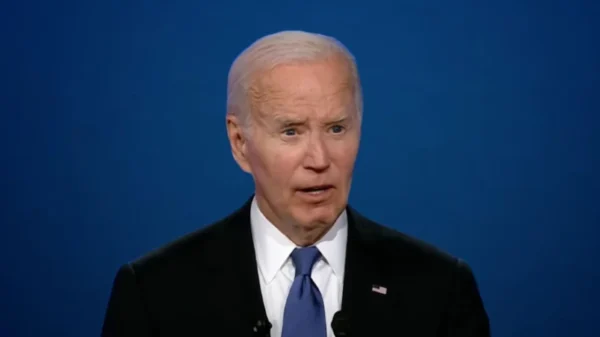At the end of last week. U.S. Rep. Gus Bilirakis, R-Fla., doubled down on his claim that the Biden administration’s decision to withdraw support of a pipeline in the eastern Mediterranean undermines key allies and will lead to higher energy costs.
At the end of last month, Bilirakis teamed up with U.S. Rep. Nicole Malliotakis, R-NY, in sending a letter to U.S. Sec. of State Antony Blinken on the administration’s decision to pull support from the Eastern Mediterranean Pipeline which is backed by Israel, Cyprus and Greece.
“By undermining the project, the administration is undercutting three of our strongest allies in the region: Israel, Greece, and Cyprus, as well as the European Union’s hopes for energy independence and economic prosperity. Europe is facing an unprecedented increase in energy prices, spurred by several political, geographic, and market forces. A significant cause of the energy price spike is the short supply of natural gas. Despite Europe’s decades-long push toward green and renewable energies, the surge in energy prices has ironically led to the increased use of coal to meet demand. As natural gas is a cleaner energy option when compared to coal, it is a crucial energy source for governments seeking to transition to greener energy sources. The European Union recognizes this fact and has declared the Eastern Mediterranean Pipeline a ‘special project,’” the congressman’s office noted.
The State Department responded earlier this month as Naz Durakoglu, a senior bureau official in the Bureau of Legislative Affairs, wrote Bilirakis and Malliotakis. Durakoglu insisted the administration remains “committed to our allies and partners in the Eastern Mediterranean” and did not change its position since the U.S. “had not formally or financially supporter” the pipeline yet.
“Our policy on new fossil fuel infrastructure overseas is guided by our climate goals. The Biden-Harris administration is focusing support away from the construction of new and large-scale fossil fuel projects, like the East Mediterranean Gas Pipeline (EMGP), and towards clean energy projects such as more flexible electricity interconnections and other infrastructure which will allow for the increased use of renewable energy to generate electricity,” wrote Durakoglu.
Bilirakis and Malliotakis fired back at the end of last week.
“Whether you want to classify the administration’s position as a clarification or a reversal, it is clearly a position at odds with positions taken during the Trump administration, at odds with positions taken by members of Congress, and at odds with American law.” they wrote. “Secondly, we have an issue with the logic behind this reversal of policy. While previous expressions of US support for the EMGP were indeed conditioned on commercial viability and the State Department’s reversal in policy assumes lack of such viability, this is a conclusion that seems to have been reached unilaterally, absent consultations with our allies and partners in the region and before the completion of feasibility studies. The EastMed Act requires multiple reports to be submitted to Congress regarding energy development and infrastructure, and to my knowledge, no report has been submitted comprehensively analyzing the commercial viability issue. The State Department appears to have rushed to a conclusion here and in the process skipped several key steps including consulting with US allies and partners and with the United States Congress as required by the EastMed Act.
“The manner in which the issue of the EMGP was handled only helps the malign influences, including Russia, Turkey and Iran, that we identified in the EastMed Act,” they added.
“There is simply no reasonable justification for turning our back on our European allies and forcing them to remain dependent on unstable and hostile regimes, like Russia, to meet their energy needs,” said Bilirakis on Friday. “This is the latest in a long line of irrational decisions from the Biden administration that undermine our credibility on the international stage and jeopardize global security. We have seen that Putin’s quest for power and influence is emboldened by Europe’s current dependence on Russia’s fuel sources. We have the opportunity to change the power dynamics by supporting our steadfast allies in this critical project. It would be foolhardy to squander such an important opportunity.”
“President Biden’s decision to shut down America’s Keystone XL Pipeline, greenlight Putin’s NordStream 2 pipeline, and now disavow the Greek-Cypriot-Israeli EastMed Pipeline is a microcosm of this administration’s failed energy and foreign policy agendas,” said Malliotakis. “This president is asleep at the wheel, and his decision-making could cause severe economic and national security consequences for America and our allies. We urge the Administration to reverse its decision to withdraw support for the Eastern Mediterranean Pipeline and work to ensure its resources are brought to market as soon as possible.”
At the end of last year, Bilirakis and U.S. Rep. Ted Deutch, D-Fla., were able to get their proposal to support Greece’s military and have that nation work closely with the U.S., Cyprus and Israel included as part of the National Defense Authorization Act (NDAA).




















